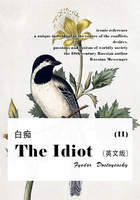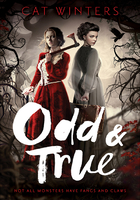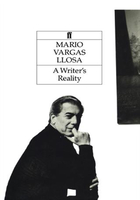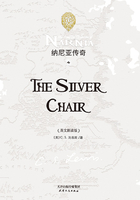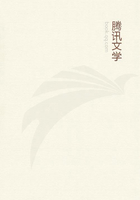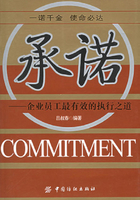Affairs were going on worse at the Hall than Roger had liked to tell. Moreover, very much of the discomfort there arose from 'mere manner,' as people express it, which is always indescribable and indefinable. Quiet and passive as Mrs. Hamley had always been in appearance, she was the ruling spirit of the house as long as she lived. The directions to the servants, down to the most minute particulars, came from her sitting-room, or from the sofa on which she lay. Her children always knew where to find her; and to find her, was to find love and sympathy. Her husband, who was often restless and angry from one cause or another, always came to her to be smoothed down and put right. He was conscious of her pleasant influence over him, and became at peace with himself when in her presence; just as a child is at ease when with some one who is both firm and gentle. But the keystone of the family arch was gone, and the stones of which it was composed began to fall apart. It is always sad when a sorrow of this kind seems to injure the character of the mourning survivors. Yet, perhaps, this injury may be only temporary or superficial; the judgments so constantly passed upon the way people bear the loss of those whom they have deeply loved, appear to be even more cruel, and wrongly meted out, than human judgments generally are. To careless observers, for instance, it would seem as though the squire was rendered more capricious and exacting, more passionate and authoritative, by his wife's death. The truth was, that it occurred at a time when many things came to harass him, and some to bitterly disappoint him; and she was no longer there to whom he used to carry his sore heart for the gentle balm of her sweet words. So the sore heart ached and smarted internally; and often, when he saw how his violent conduct affected others, he could have cried out for their pity, instead of their anger and resentment: 'Have mercy upon me, for I am very miserable.' How often have such dumb thoughts gone up from the hearts of those who have taken hold of their sorrow by the wrong end, as prayers against sin! And when the squire saw that his servants were learning to dread him, and his first-born to avoid him, he did not blame them. He knew he was becoming a domestic tyrant; it seemed as if all circumstances conspired against him, and as if he was too weak to struggle with them; else, why did everything indoors and out-of-doors go so wrong just now, when all he could have done, had things been prosperous, was to have submitted, in very imperfect patience, to the loss of his wife? But just when he needed ready money to pacify Osborne's creditors, the harvest had turned out remarkably plentiful, and the price of corn had sunk down to a level it had not touched for years. The squire had insured his life at the time of his marriage for a pretty large sum. It was to be a provision for his wife, if she had survived him, and for their younger children. Roger was the only representative of these interests now; but the squire was unwilling to lose the insurance by ceasing to pay the annual sum. He would not, if he could, have sold any part of the estate which he inherited from his father; and, besides, it was strictly entailed. He had sometimes thought how wise a step it would have been could he have sold a portion of it, and with the purchase-money have drained and reclaimed the remainder; and at length, learning from some neighbour that Government would make certain advances for drainage, &c. at a very low rate of interest, on condition that the work was done, and the money repaid, within a given time; his wife had urged him to take advantage of the proffered loan. But now that she was no longer here to encourage him, and take an interest in the progress of the work, he grew indifferent to it himself, and cared no more to go out on his stout roan cob, and sit square on his seat, watching the labourers on the marshy land all overgrown with rushes; speaking to them from time to time in their own strong nervous country dialect: but the interest to Government had to be paid all the same, whether the men worked well or ill. Then the roof of the Hall let in the melted snow-water this winter; and, on examination, it turned out that a new roof was absolutely required. The men who had come about the advances made to Osborne by the London money-lender, had spoken disparagingly of the timber on the estate—'Very fine trees—sound, perhaps, too, fifty years ago, but gone to rot now; had wanted lopping and clearing. Was there no wood-ranger or forester? They were nothing like the value young Mr. Hamley had represented them to be of.' The remarks had come round to the squire's ears. He loved the trees he had played under as a boy as if they were living creatures; that was on the romantic side of his nature. Merely looking at them as representing so many pounds sterling, he had esteemed them highly, and had had, until now, no opinion of another by which to correct his own judgment. So these words of the valuers cut him sharp, although he affected to disbelieve them, and tried to persuade himself that he did so. But, after all, these cares and disappointments did not touch the root of his deep resentment against Osborne. There is nothing like wounded affection for giving poignancy to anger. And the squire believed that Osborne and his advisers had been making calculations, based upon his own death. He hated the idea so much—it made him so miserable—that he would not face it, and define it, and meet it with full inquiry and investigation. He chose rather to cherish the morbid fancy that he was useless in this world—born under an unlucky star—that all things went badly under his management. But he did not become humble in consequence. He put his misfortunes down to the score of Fate—not to his own; and he imagined that Osborne saw his failures, and that his first-born grudged him his natural term of life. All these fancies would have been set to rights could he have talked them over with his wife; or even had he been accustomed to mingle much in the society of those whom he esteemed his equals; but, as has been stated, he was inferior in education to those who should have been his mates; and perhaps the jealousy and mauvaise honte that this inferiority had called out long ago, extended itself in some measure to the feelings he entertained towards his sons—less to Roger than to Osborne, though the former was turning out by far the most distinguished man. But Roger was practical; interested in all out-of-doors things, and he enjoyed the details, homely enough, which his father sometimes gave him of the every-day occurrences which the latter had noticed in the woods and the fields. Osborne, on the contrary, was what is commonly called 'fine;' delicate almost to effeminacy in dress and in manner; careful in small observances. All this his father had been rather proud of in the days when he had looked forward to a brilliant career at Cambridge for his son; he had at that time regarded Osborne's fastidiousness and elegance as another stepping-stone to the high and prosperous marriage which was to restore the ancient fortunes of the Hamley family. But now that Osborne had barely obtained his degree; that all the boastings of his father had proved vain; that the fastidiousness had led to unexpected expenses (to attribute the most innocent cause to Osborne's debts), the poor young man's ways and manners became a subject of irritation to his father. Osborne was still occupied with his books and his writings when he was at home; and this mode of passing the greater part of the day gave him but few subjects in common with his father when they did meet at meal-times, or in the evenings. Perhaps if Osborne had been able to have more out-of-door amusements it would have been better; but he was short-sighted, and cared little for the carefully-observant pursuits of his brother: he knew but few young men of his own standing in the county; his hunting even, of which he was passionately fond, had been curtailed this season, as his father had disposed of one of the two hunters he had been hitherto allowed. The whole stable establishment had been reduced; perhaps because it was the economy which told most on the enjoyment of both the squire and Osborne, and which, therefore, the former took a savage pleasure in enforcing. The old carriage—a heavy family coach bought in the days of comparative prosperity—was no longer needed after madam's death, and fell to pieces in the cobwebbed seclusion of the coach-house.' The best of the two carriage-horses was taken for a gig, which the squire now set up; saying many a time to all who might care to listen to him that it was the first time for generations that the Hamleys of Hamley had not been able to keep their own coach. The other carriage-horse was turned out to grass; being too old for regular work. Conqueror used to come whinnying up to the park palings whenever he saw the squire, who had always a piece of bread, or some sugar, or an apple for the old favourite—and made many a complaining speech to the dumb animal, telling him of the change of times since both were in their prime. It had never been the squire's custom to encourage his boys to invite their friends to the Hall. Perhaps this, too, was owing to his mauvaise honte, and also to an exaggerated consciousness of the deficiencies of his establishment as compared with what he imagined these lads were accustomed to at home. He explained this once or twice to Osborne and Roger when they were at Rugby.
'You see, all you public schoolboys have a kind of freemasonry of your own, and outsiders are looked on by you much as I look on rabbits and all that isn't game. Ay, you may laugh, but it is so; and your friends will throw their eyes askance at me, and never think on my pedigree, which would beat theirs all to shivers, I'll be bound. No: I'll have no one here at the Hall who will look down on a Hamley of Hamley, even if he only knows how to make a cross instead of write his name.'
Then, of course, they must not visit at houses to whose sons the squire could not or would not return a like hospitality. On all these points Mrs. Hamley had used her utmost influence without avail; his prejudices were immovable. As regarded his position as head of the oldest family in three counties, his pride was invincible; as regarded himself personally—ill at ease in the society of his equals, deficient in manners, and in education—his morbid sensitiveness was too sore and too self-conscious to be called humility.
Take one instance from among many similar scenes of the state of feeling between the squire and his eldest son, which, if it could not be called active discord, showed at least passive estrangement.
It took place on an evening in the March succeeding Mrs. Hamley's death. Roger was at Cambridge. Osborne had also been from home, and he had not volunteered any information as to his absence. The squire believed that Osborne had been either in Cambridge with his brother, or in London; he would have liked to hear where his son had been, what he had been doing, and whom he had seen, purely as pieces of news, and as some diversion from the domestic worries and cares which were pressing him hard; but he was too proud to ask any questions, and Osborne had not given him any details of his journey. This silence had aggravated the squire's internal dissatisfaction, and he came home to dinner weary and sore-hearted a day or two after Osborne's return. It was just six o'clock, and he went hastily into his own little business-room on the ground-floor, and, after washing his hands, came into the drawing-room feeling as if he were very late, but the room was empty. He glanced at the clock over the mantelpiece, as he tried to warm his hands at the fire. The fire had been neglected, and had gone out during the day; it was now piled with half-dried wood, which sputtered and smoked instead of doing its duty in blazing and warming the room, through which the keen wind was cutting its way in all directions. The clock had stopped, no one had remembered to wind it up, but by the squire's watch it was already past dinner-time. The old butler put his head into the room, but, seeing the squire alone, he was about to draw it back, and wait for Mr. Osborne, before announcing dinner. He had hoped to do this unperceived, but the squire caught him in the act.
'Why isn't dinner ready?' he called out sharply. 'It's ten minutes past six. And, pray, why are you using this wood? It's impossible to get oneself warm by such a fire as this.'
'I believe, sir, that Thomas—'
'Don't talk to me of Thomas. Send dinner in directly.'
About five minutes elapsed, spent by the hungry squire in all sorts of impatient ways—attacking Thomas, who came in to look after the fire; knocking the logs about, scattering out sparks, but considerably lessening the chances of warmth; touching up the candles, which appeared to him to give a light unusually insufficient for the large cold room. While he was doing this, Osborne came in dressed in full evening dress. He always moved slowly; and this, to begin with, irritated the squire. Then an uncomfortable consciousness of a rough black coat, drab trowsers, checked cotton cravat, and splashed boots, forced itself upon him as he saw Osborne's point-device costume. He chose to consider it affectation and finery in Osborne, and was on the point of bursting out with some remark, when the butler, who had watched Osborne downstairs before making the announcement, came in to say that dinner was ready.
'It surely isn't six o'clock?' said Osborne, pulling out his dainty little watch. He was scarcely more aware than it of the storm that was brewing.
'Six o'clock! It's more than a quarter past,' growled out his father,
'I fancy your watch must be wrong, sir. I set mine by the Horse Guards only two days ago.'
Now, impugning that old steady, turnip-shaped watch of the squire's was one of the insults which, as it could not reasonably be resented, was not to be forgiven. That watch had been given him by his father when watches were watches long ago. It had given the law to house-clocks, stable-clocks, kitchen-clocks—nay, even to Hamley Church clock in its day; and was it now, in its respectable old age, to be looked down upon by a little whipper-snapper of a French watch which could go into a man's waistcoat pocket, instead of having to be extricated, with due effort, like a respectable watch of size and position, from a fob in the waistband? No! Not if the whipper-snapper were backed by all the Horse Guards that ever were, with the Life Guards to boot. Poor Osborne might have known better than to cast this slur on his father's flesh and blood; for so dear did he hold his watch!
'My watch is like myself,' said the squire, 'girning,' as the Scotch say—'plain, but steady-going. At any rate, it gives the law in my house. The King may go by the Horse Guards if he likes.'
'I beg your pardon, sir,' said Osborne, really anxious to keep the peace; 'I went by my watch, which is certainly right by London time; and I'd no idea you were waiting for me, otherwise I could have dressed much quicker.'
'I should think so,' said the squire, looking sarcastically at his son's attire. 'When I was a young man I should have been ashamed to have spent as much time at my looking-glass as if I'd been a girl. I could make myself as smart as any one when I was going to a dance, or to a party where I was likely to meet pretty girls; but I should have laughed myself to scorn if I'd stood fiddle-faddling at a glass, smirking at my own likeness, all for my own pleasure.'
Osborne reddened, and was on the point of letting fly some caustic remark on his father's dress at the present moment; but he contented himself with saying, in a low voice,—
'My mother always expected us all to dress for dinner. I got into the habit of doing it to please her, and I keep it up now.' Indeed, he had a certain kind of feeling of loyalty to her memory in keeping up all the little domestic habits and customs she had instituted or preferred. But the contrast which the squire thought was implied by Osborne's remark, put him beside himself.
'And I, too, try to attend to her wishes. I do: and in more important things. I did when she was alive; and I do so now.'
'I never said you did not,' said Osborne, astonished at his father's passionate words and manner.
'Yes, you did, sir. You meant it. I could see by your looks. I saw you look at my morning-coat. At any rate, I never neglected any wish of hers in her life-time. If she'd wished me to go to school again and learn my A, B, C, I would. By—I would; and I wouldn't have gone playing me, and lounging away my time, for fear of vexing and disappointing her. Yet some folks older than schoolboys—' The squire choked here; but though the words would not come his passion did not diminish. 'I'll not have you casting up your mother's wishes to me, sir. You, who went near to break her heart at last!'
Osborne was strongly tempted to get up and leave the room. Perhaps it would have been better if he had; it might then have brought about an explanation, and a reconciliation between father and son. But he thought he did well in sitting still and appearing to take no notice. This indifference to what he was saying appeared to annoy the squire still more, and he kept on grumbling and talking to himself till Osborne, unable to bear it any longer, said, very quietly, but very bitterly,—'I am only a cause of irritation to you, and home is no longer home to me, but a place in which I am to be controlled in trifles, and scolded about trifles as if I were a child. Put me in a way of making a living for myself—that much your oldest son has a right to ask of you—I will then leave this house, and you shall be no longer vexed by my dress, or my want of punctuality.'
'You make your request pretty much as another son did long ago: "Give me the portion that falleth to me." But I don't think what he did with his money is much encouragement for me to—' Then the thought of how little he could give his son his 'portion,' or any part of it, stopped the squire.
Osborne took up the speech.
'I'm as ready as any man to earn my living; only the preparation for any profession will cost money, and money I haven't got.'
'No more have I,' said the squire, shortly.
'What is to be done then?' said Osborne, only half believing his father's words.
'Why, you must learn to stop at home, and not take expensive journeys; and you must redeem your tailor's bills. I don't ask you to help me in the management of the land—you're far too fine a gentleman for that; but if you can't earn money, at least you needn't spend it.'
'I've told you I'm willing enough to earn money,' cried Osborne, passionately at last. 'But how am I to do it? You really are very unreasonable, sir.'
'Am I?' said the squire—cooling in manner, though not in temper, as Osborne grew warm. 'But I don't set up for being reasonable: men who have to pay away money that they haven't got for their extravagant sons, aren't likely to be reasonable. There's two things you've gone and done which put me beside myself, when I think of them: you've turned out next door to a dunce at college, when your poor mother thought so much of you—and when you might have pleased and gratified her so if you chose—and, well! I won't say what the other thing is.'
'Tell me, sir,' said Osborne, almost breathless with the idea that his father had discovered his secret marriage; but the father was thinking of the money-lenders, who were calculating how soon Osborne would come into the estate.
'No!' said the squire. 'I know what I know; and I'm not going to tell you how I know it. Only, I'll just say this—your friends no more know a piece of good timber when they see it than you or I know how you could earn five pounds if it was to keep you from starving. Now, there's Roger—we none of us made an ado about him; but he'll have his fellowship now I'll warrant him, and be a bishop, or a chancellor, or something, before we've found out he's clever—we've been so much taken up thinking about you. I don't know what's come over me to speak of "we"—"we" in this way,' said he, suddenly dropping his voice,—a change of tone as sad as sad could be. 'I ought to say "I;" it will be "I" for evermore in this world.'
He got up and left the room in quick haste, knocking over his chair, and not stopping to pick it up. Osborne, who was sitting and shading his eyes with his hand, as he had been doing for some time, looked up at the noise, and then rose as quickly and hurried after his father, only in time to hear the study-door locked on the inside the moment he reached it.
Osborne returned into the dining-room chagrined and sorrowful. But he was always sensitive to any omission of the usual observances, which might excite remark; and even with his heavy heart he was careful to pick up the fallen chair, and restore it to its place near the bottom of the table; and afterwards so to disturb the dishes as to make it appear that they had been touched, before ringing for Robinson. When the latter came in, followed by Thomas, Osborne thought it necessary to say to him that his father was not well, and had gone into the study; and that he himself wanted no dessert, but would have a cup of coffee in the drawing-room. The old butler sent Thomas out of the room, and came up confidentially to Osborne.
'I thought master wasn't justly himself, Mr. Osborne, before dinner. And therefore I made excuses for him—I did. He spoke to Thomas about the fire, sir, which is a thing I could in nowise put up with, unless by reason of sickness, which I am always ready to make allowances for.'
'Why shouldn't my father speak to Thomas?' said Osborne. 'But, perhaps, he spoke angrily, I daresay; for I'm sure he's not well.'
'No, Mr. Osborne, it wasn't that. I myself am given to anger; and I'm blessed with as good health as any man in my years. Besides, anger's a good thing for Thomas. He needs a deal of it. But it should come from the right quarter—and that is me myself, Mr. Osborne. I know my place, and I know my rights and duties as well as any butler that lives. And it's my duty to scold Thomas, and not master's. Master ought to have said, "Robinson! you must speak to Thomas about letting out the fire," and I'd ha' given it him well,—as I shall do now, for that matter. But as I said before, I make excuses for master, as being in mental distress and bodily ill-health; so I've brought myself round not to give warning, as I should ha' done, for certain, under happier circumstances.'
'Really, Robinson, I think it's all great nonsense,' said Osborne, weary of the long story the butler had told him, and to which he had not half attended. 'What in the world does it signify whether my father speaks to you or to Thomas? Bring me coffee in the drawing-room, and don't trouble your head any more about scolding Thomas.'
Robinson went away offended at his grievance being called nonsense. He kept muttering to himself in the intervals of scolding Thomas, and saying,—'Things is a deal changed since poor missis went. I don't wonder master feels it, for I'm sure I do. She was a lady who had always a becoming respect for a butler's position, and could have understood how he might be hurt in his mind. She'd never ha' called his delicacies of feelings nonsense—not she; no more would Mr. Roger. He's a merry young gentleman, and over-fond of bringing dirty, slimy creatures into the house; but he's always a kind word for a man who is hurt in his mind. He'd cheer up the squire, and keep him from getting so cross and wilful. I wish Mr. Roger was here, I do.'
The poor squire, shut up with his grief and his ill-temper as well, in the dingy, dreary study in which he daily spent more and more of his indoors life, turned over his cares and troubles till he was as bewildered with the process as a squirrel must be in going round in a cage. He had out day-books and ledgers, and was calculating up back- rents; and every time the sum-totals came to different amounts. He could have cried like a child over his sums; he was worn out and weary, angry and disappointed. He closed his books at last with a bang.
'I'm getting old,' he said, 'and my head's less clear than it used to be. I think sorrow for her has dazed me. I never was much to boast on; but she thought a deal of me—bless her! She'd never let me call myself stupid; but, for all that, I am stupid. Osborne ought to help me. He's had money enough spent on his learning; but instead, he comes down dressed like a popinjay, and never troubles his head to think how I'm to pay his debts. I wish I'd told him to earn his living as a dancing- master,' said the squire, with a sad smile at his own wit. 'He's dressed for all the world like one. And how he's spent the money no one knows! Perhaps Roger will turn up some day with a heap of creditors at his heels. No, he won't—not Roger; he may be slow, but he's steady, is old Roger. I wish he was here. He's not the eldest son, but he'd take an interest in the estate; and he'd do up these weary accounts for me. I wish Roger was here!'

